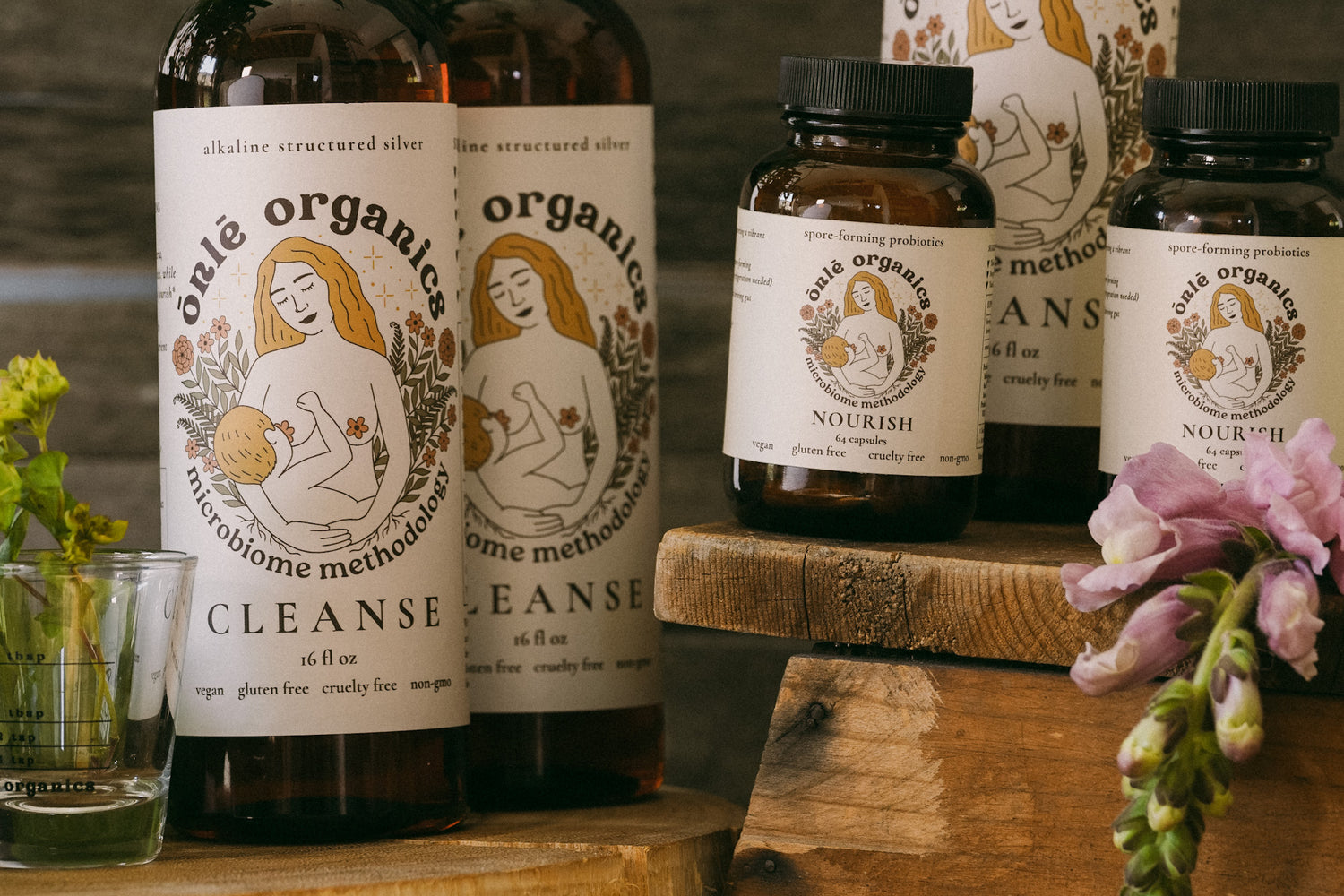


Bloating is a common and uncomfortable sensation that many people experience. We all know that feeling when your stomach is swollen, tight, and full of gas. And while occasional bloating can be a normal response to certain foods or hormone fluctuations, chronic bloating indicates a deeper issue - an imbalance in your gut microbiome.

Links from episode . . .
Subscribe to Follow Your Gut with Juniper Bennett wherever you listen to podcasts
You can click one of the buttons below to take you there

Transcript:
Bloating is a common and uncomfortable sensation that many people experience. We all know that feeling when your stomach is swollen, tight, and full of gas. And while occasional bloating can be a normal response to certain foods or hormone fluctuations, chronic bloating indicates a deeper issue. An imbalance in your gut microbiome.
If you have been around for a while or if you have a basic understanding of your gut, you know that your microbiome is a complex community of trillions of microorganisms, including bacteria, viruses, fungus, and other microbes, living in and on your body. These tiny organisms play a crucial role in your overall health, influencing your digestion, immune function, hormones and even your mood.
When the balance of good and bad bacteria in your gut is off, harmful bacteria takes over which leads to symptoms like bloating. But how exactly does this happen?
- As the overgrowth of bad bad bacteria eats and digests your food it produces a gas that causes your bloating.
- When your gut is imbalanced it is unable to break down and absorb certain nutrients. This causes them to ferment in your gut which also produces gas and leads to bloating.
- An imbalanced gut also triggers inflammation in your gut lining. This inflammation slows down digestion and leads to the retention of gas and water, contributing to a bloated feeling.
- Your gut microbiome also helps with the movement of food through the digestive tract. An imbalance can disrupt this process, causing delayed digestion, gas buildup, and bloating.
There are several contributors to gut imbalance.
Let’s fo over the reasons why imbalance is so common, and why you or your child might be struggling even though you are doing everything right.
Modern Diets: Our ancestral diets consisted of whole foods, rich in fiber and nutrients. Modern diets, however, are heavy on processed foods, refined sugars, and unhealthy fats, leading to a decline in our beneficial bacteria. These processed foods not only lack the nutrients needed to nourish good bacteria but they also feed harmful bacteria, yeast, and parasites.
Environmental Changes: Beneficial environmental bacteria that our ancestors got from fruits, vegetables, and grains are now non-existent due to chemicalized farming practices. The heavy use of pesticides, herbicides, and chemical fertilizers has destroyed the balance of our environment, affecting the food we consume and diminishing the diverse microorganisms that our ancestors naturally got from their environment. Growing your own garden or shopping at the local farmers market provides more than just nutrient dense foods. It provides living density. When growing your own garden, use organic soil and seeds, choose organic when you shop whenever you can and encourage micro biotic life to grow on and in your body, home, and garden.
GMOs and Glyphosate: GMOs contain built-in pesticides, affecting not only harmful insects but also beneficial bacteria in our gut when we consume them. Meanwhile, Roundup is directly linked to microbiome imbalances by killing off beneficial bacteria and promoting the growth of harmful ones. There was a recent comprehensive study done on hundreds of very mindful eaters around the world. These are people who consider themselves “non-gmo”. They shop locally and organically. 100% of them showed significant amounts of glyphosate in their urine. The United States alone uses 800,000,000 pounds of roundup every single year! Not only for agriculture but on the grass in parks, on the boulevard in front of your house. So even if you are really mindful like the participants in this study, you are still exposed. It is in the air, in the rain, our water is highly contaminated and it is of course on our food. What can you do? Strictly commit to organic as much as you possibly can and just do your best.
Antibiotic Overuse: While antibiotics have revolutionized medicine, their rampant overuse and misuse creates unintended consequences for the microbiome. Antibiotics not only target pathogens but also wreak havoc on beneficial bacteria, leading to imbalance. Stock your medicine cabinet with products like Cleanse that can be used as your first line of defense. Cleanse nurtures your good bacteria while destroying the bad. It is the product that has prevented my four children from ever needing antibiotics. It works wonders for ear infections, strep throat, pink eye and so many other things that antibiotics are so readily prescribed for.
Over Sanitization: Sanitation practices have undeniably advanced public health, yet they limit our exposure to diverse microorganisms. This deficiency in exposure compromises the development of your internal resilient and diverse microbiome, contributing to an incline in allergies and autoimmune disorders. I am all about washing hands and wiping counters. But it is so important to use plant-based cleaners and microbiome friendly soaps that don’t kill the good along with the bad.
I have two more contributors. Next is stress and Lifestyle Factors: the chronic stress that we experience today, insufficient sleep, and sedentary lifestyles reshape the composition of the microbiome, again favoring the growth of bad bacteria linked to inflammation. Fresh air, meditation and exercise are not a luxury. They are necessary when it comes to nurturing your microbiome and therefore your overall well-being.
Lastly, Treated Chlorinated Water: Just about every town and city treats the water. This is wonderful as it rids the water of harmful pathogens, but it simultaneously eliminates the beneficial bacteria in the water and not only that but the chlorine in the treated water actually kills the good bacteria in your body. It is so important to invest in a nano water filtration system that can filter out the chlorine. I am working on getting a discount code to share because I know it can be an investment but I highly recommend the Berkey Water Filter. Pack your own water on outings and just be mindful when it comes to the water you consume.
What to do?
To heal your gut microbiome and reduce bloating, you will want to rebalance your gut with supplements while making some lifestyle changes. My Women’s and Children’s Gut Rebalance Kit is designed to do this. It will kill the harmful bacteria while helping the good to take over and flourish. With these kits you get free access to my course where you will learn exactly what to eat and avoid while healing your gut. You can also get the PDF version of my cookbook for just $4.99. It will really simplify the whole food side of your healing. Let your healing be easy.
And if you experience bloating caused by something you knowingly have like IBS, candida overgrowth or SIBO, this rebalance is going to heal your body too. It will take time and you will want to get the rebalance kit on an 8 week subscription and plan on doing a few back to back rebalances but with time and commitment, your body will heal.
Alrighty my friend, I hope this was insightful for you. Bloating is such a common thing that people experience that we often lose touch with the possibility of it ever changing. You can heal. You don’t have to live in discomfort. It’s up to you to be the leader of your life experience and with the awareness you gained today, you can transform your health. Okay, I will catch you next week.

